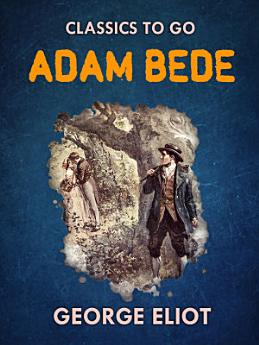Adam Bede
Okt 2018 · Otbebookpublishing
E-Book
483
Seiten
family_home
Zulässig
info
reportBewertungen und Rezensionen werden nicht geprüft Weitere Informationen
Über dieses E-Book
Autoren-Profil
George Eliot, born Mary Ann Evans on November 22, 1819, in Warwickshire, England, is a towering figure in Victorian literature. Adopting a male pen name to ensure her works were taken seriously in a male-dominated literary world, Eliot defied societal norms and became one of the most influential novelists of her time. Her works are celebrated for their deep psychological insight, rich character development, and keen observations of rural and provincial life.Eliot's personal life was as unconventional as her professional one. She formed a scandalous yet enduring relationship with the married philosopher and critic George Henry Lewes, a partnership that lasted until his death. This relationship, along with her progressive views on religion and society, often placed her at odds with Victorian moral standards but also positioned her as a forward-thinking intellectual.Her novels, such as "Middlemarch" and "The Mill on the Floss," are lauded for their exploration of complex themes like social change, women's rights, and the intricacies of human relationships. Eliot's ability to weave intricate plots with profound ethical questions has influenced countless writers, including Virginia Woolf, who famously called "Middlemarch" one of the few English novels written for grown-up people.Eliot's legacy extends beyond her literary achievements; she challenged the rigid gender roles of her era and championed the idea that literature could be a vehicle for social and moral reform. Her life and works continue to resonate, offering modern readers a window into the struggles and triumphs of a woman who dared to defy convention and left an indelible mark on the literary world.
Dieses E-Book bewerten
Deine Meinung ist gefragt!
Informationen zum Lesen
Smartphones und Tablets
Nachdem du die Google Play Bücher App für Android und iPad/iPhone installiert hast, wird diese automatisch mit deinem Konto synchronisiert, sodass du auch unterwegs online und offline lesen kannst.
Laptops und Computer
Im Webbrowser auf deinem Computer kannst du dir Hörbucher anhören, die du bei Google Play gekauft hast.
E-Reader und andere Geräte
Wenn du Bücher auf E-Ink-Geräten lesen möchtest, beispielsweise auf einem Kobo eReader, lade eine Datei herunter und übertrage sie auf dein Gerät. Eine ausführliche Anleitung zum Übertragen der Dateien auf unterstützte E-Reader findest du in der Hilfe.







